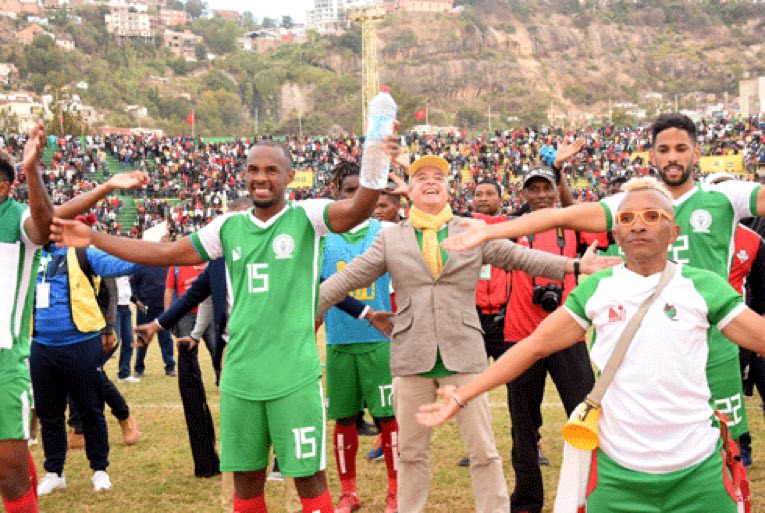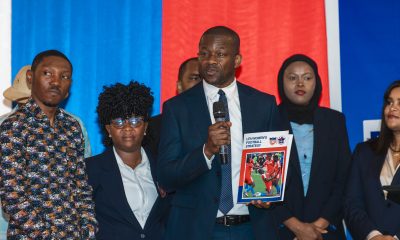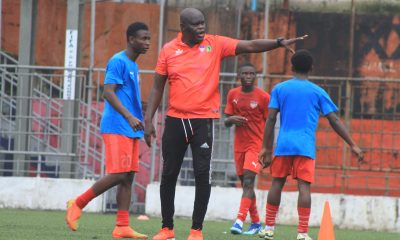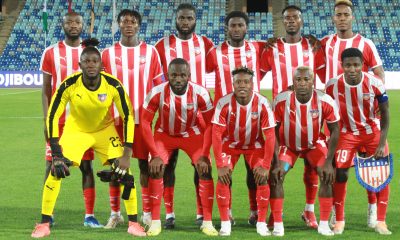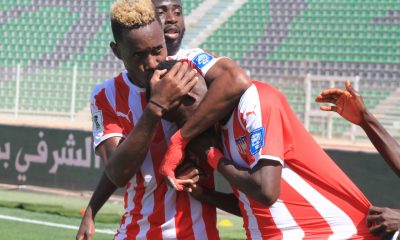Football has an uncanny way of surprising us once in a while, and one month ago, the continent witnessed a remarkable tale with Madagascar qualifying for the Africa Cup of Nations (AFCON) for the first time.
The country booked its maiden spot at next year’s Africa Cup of Nations tournament after beating Equatorial Guinea 1-0 in Group A, a win that placed them at 10 points and in the second position behind group leaders Senegal, with two fixtures remaining.
In a match watched by nearly 40,000 fans and many millions more in the suburbs and favelas of the Indian Ocean, the Islanders exhaled a cry of exultation, of gratitude, but especially of relief after decades of misses.
Vontovorona Stadium exploded- an explosion that seemed to part the clouds that had earlier in the day set loose to irrigate the grass and cool the temperatures then.
But mostly, the defining emotion of the evening was nervousness when the Thai League One midfielder Njiva Rakotoharimalala hit the top right of the goal past the largely impressive towering Equatorial Guinean goalkeeper.
Few people could have put their money on Madagascar qualifying for the tournament in Cameroon next year. If anything, you could be forgiven for betting on the country finishing the qualifying round anchored at the bottom, judging by history and the latest FIFA rankings.
On their way to booking the historic qualification, Madagascar beat Sudan 1-0 in the opening match of the Group in June last year, held Senegal 2-2 at home before beating Equatorial Guinea 1-1 home and way.
With a semi-professional league which is faced with perennial sponsorship problems, Madagascar have undoubtedly been one of the underdogs of the qualifiers and the team has been commended for its hard work and tenacity.
Brief Madagascan football history
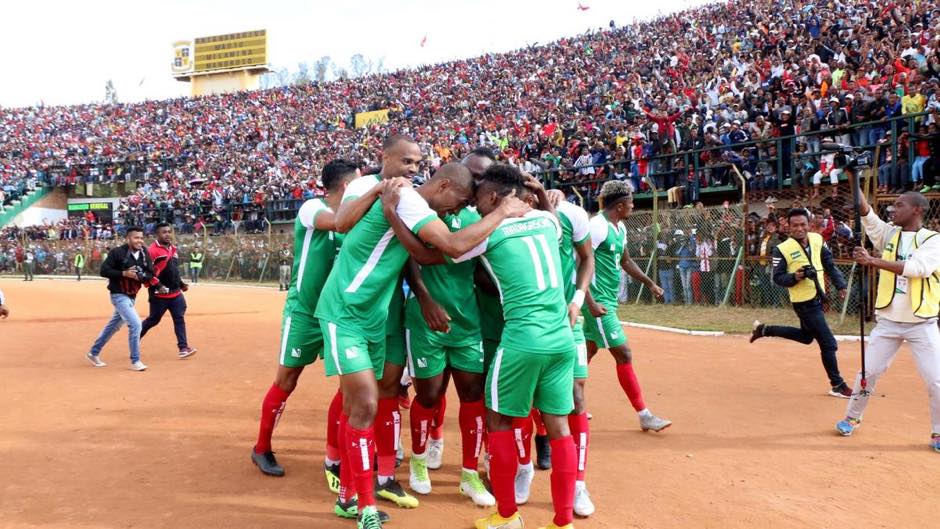 Madagascar, which is an Island nation off the Southern Coast of Africa, first participated for the first time AFCON qualifiers in 1968, but they never came near qualification, hence their experience in Cameroon will no doubt be an eye opener for the side. It will show the establishment of a new order in African football.
Madagascar, which is an Island nation off the Southern Coast of Africa, first participated for the first time AFCON qualifiers in 1968, but they never came near qualification, hence their experience in Cameroon will no doubt be an eye opener for the side. It will show the establishment of a new order in African football.
Former international Frank Rajaonarisamba started the reign of rebuilding Bareas when he was appointed as the head coach in 2014. He changed all of that as he looked to his homeland and the rest of Europe to find any player he could that qualified for the country.
During his tenure, he has brought in some key performers to supplement their home-grown talent, which has been a major reason why they will be appearing at the finals.
After his reign, the continuity was seen with the appointment of current boss Nicholas Dupuis who took the reins in April last year after another coach, Auguste Raux, was shown the door after being in charge of a few games.
His record is now there to be seen and it started with the wonderful result against Equatorial in October. Indeed, the team fielded a full squad of players plying their trade outside of the continent.
Squad Overview

Most of the Galaxy of Barea’s stars ply their trade in France, Bulgaria, Thailand and even Egypt.
French-born Pascal Razakanantenaina is one of the high profile players in the squad. Lalaina Nomenjanahary, formerly with JS Saint-Pierrois and previously played at Ajesaia, is the other player who has brought pace in the squad.
The heart of Barea midfield is marshaled by Faneva Andriatsima, who plays for French side Le Harve. In the team he serves as the team captain and his leadership skills are evident. He will be one of the players expected to shock Africa.
Njiva Rakotoharimalala is another player that will raise the opposition’s eyebrows. Being one of the experienced players in the squad, the midfielder plays for Sukhothai in Thailand where he has a dominant place in the first team.
Another player to watch is Anicet Abel Andrianantenaina, currently with Bulgarian side Ludogorets Razgrad in the Bulgarian First League. he provided two assists from the flanks that helped his team score in the two matches against Equatorial Guinea.
